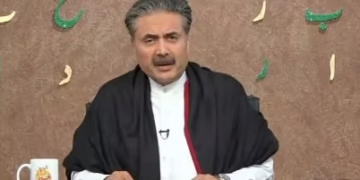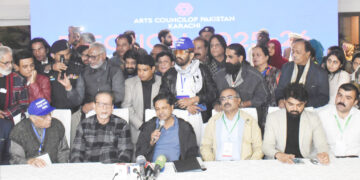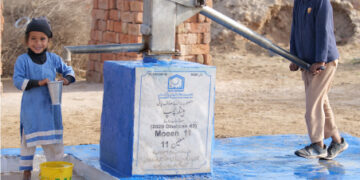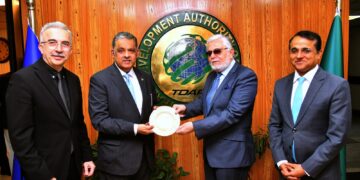Karachi : Mr. Irfan Iqbal Sheikh, President FPCCI, has met the world-renowned philanthropist and the founding president of the Indus Hospital, Dr. Abdul Bari Khan, at the FPCCI Head Office, Karachi, to discuss the ways & means through which the business, industry and trade community of Pakistan can assist the Indus Hospital & Health Network (IHHN) with their under construction projects, planned non-for-profit ventures and operational costs.
Mr. Irfan Iqbal Sheikh proposed that the business community should set up a collective fund under the umbrella of the apex body of FPCCI to help bridge the financing gaps being faced by Indus Hospital. In this manner, he proposed, various chambers, trade bodies and associations can adopt a floor, various wards or rooms to finance their operations.
Mr. Irfan Iqbal Sheikh appreciated the fact that IHHN has now expanded to 15 hospitals across Pakistan and they treat 500,000 patients every month – all without a charge. This is no mean achievement by any national or international standard, he added.
Dr. Abdul Bari Khan apprised that the ongoing construction of 1,350-bed tertiary-care hospital & center of excellence in Karachi with a project cost of PKR. 20 billion has been funded to the tune of 60 – 70 percent by now; and, the remaining funding needs to be arranged in order to complete this project of national importance.


Dr. Abdul Bari Khan also highlighted the fact that the business community and FPCCI members have always been at the forefront of supporting the cause of Indus Hospital; and, he is hopeful that FPCCI members will support them with even greater vigor, zeal and ownership.
Mr. Suleman Chalwa, SVP FPCCI, stated that FPCCI will also encourage its member bodies to support IHHN; and, their public-private partnership (PPP) or 3P framework should be imbibed for more transformations of the public-sector healthcare facilities. He also stressed that the government has failed to provide healthcare services to the masses; and, now that, Pakistan’s population is expected to 350 million by the year 2050, it is immensely critical for the private-sector and philanthropists to play their role to bridge the ever-yawning gaps.

















